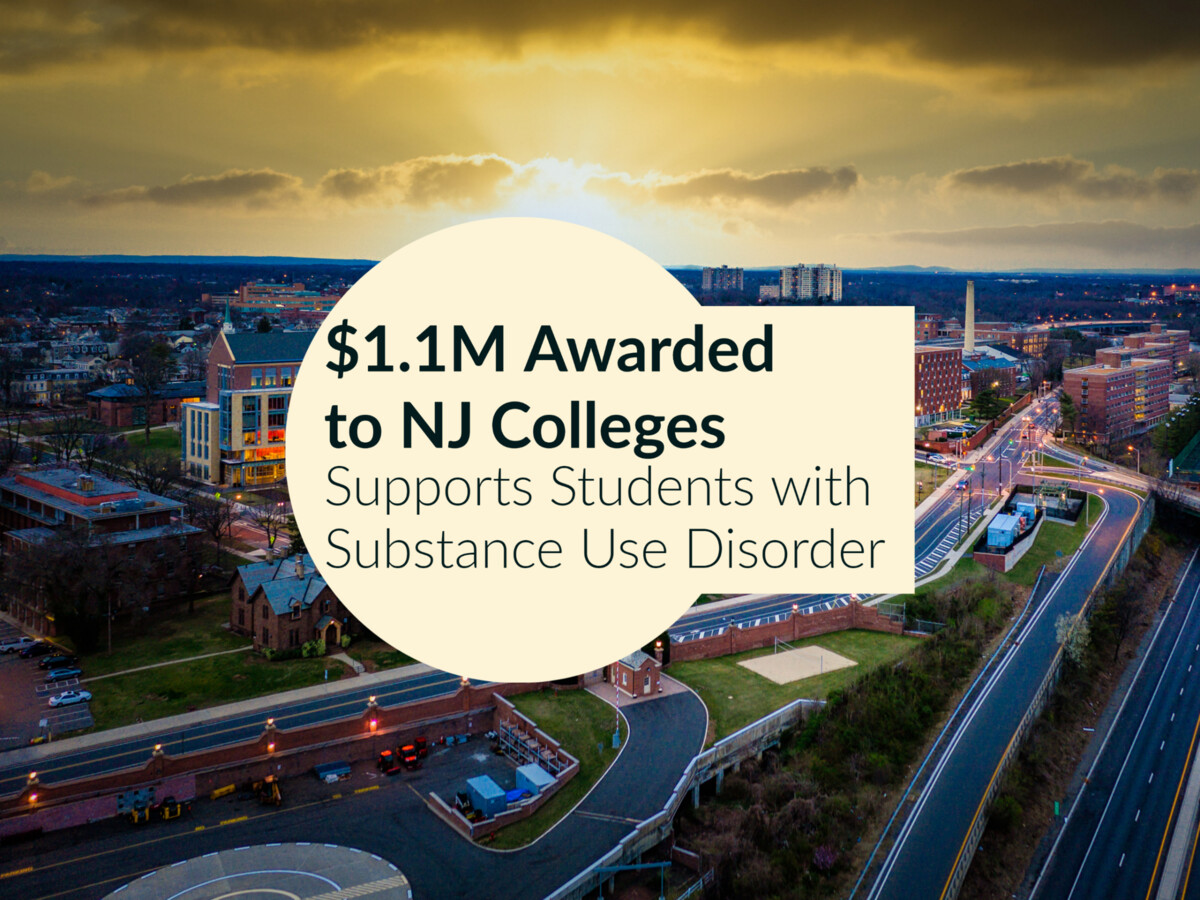Image


The New Jersey Department of Human Services recently announced that it has awarded more than $1.1 million in contracts to New Jersey college campuses to provide supportive, substance-free living environments, addiction prevention services, and support for students in recovery from substance use disorder.
The program is funded through federal Substance Abuse Block Grant COVID-19 Supplemental funding. Services are expected to start this year and continue through March of 2023.
The contracts were awarded to the Rowan University School of Osteopathic Medicine in Stratford; Rutgers, the State University of New Jersey in Piscataway; and Rutgers University Newark, with maximum awards of $375,000.
“There is already great pressure to meet the academic demands of college, which can be compounded for students in recovery as they navigate their academic and personal journeys,” said Deputy Commissioner of Health Services Lisa Asare. “These contracts will help normalize a substance-free lifestyle in higher education institutions so that students in recovery and students who choose to live in a substance free environment have the tools to thrive in a college setting and reach their academic goals.”
Each awardee is required to provide individual and group substance abuse recovery-oriented programs and services; implement campus-wide environmental prevention strategies such as providing substance-free activities for all dorm residents; provide assessment, academic, and relapse prevention services to students; and other appropriate services.
Services will be offered in a safe and nonjudgmental environment. Providers will ensure that diversity, equity, inclusion, and cultural and linguistic competence are a part of the services offered to the campus community. Providers will also be required to analyze data to implement strategies to increase program participation and ensure the demographic data is relevant.
On an average day during the past year, 1.2 full-time college students drank alcohol, and full-time college students who used alcohol in the past month drank an average of 4.1 drinks per day.
According to the National Institute on Alcohol Abuse and Alcoholism, 25% of college students reported adverse academic consequences due to alcohol abuse, and 2.1 million drove under the influence last year.
“For a young adult in recovery and their loves ones, it can be scary to enter a college environment where addictive substances can be readily available and potentially face adverse consequences,” said Assistant Commissioner Valerie Mielke, who directs Human Services’ Division of Mental Health and Addiction Services. “Recovery housing and programs ease these concerns as students complete their college education among a support network of like-minded peers that also value addiction recovery. Having a supportive community is key in sustaining recovery and preventing reoccurrence.”
“I continue to urge anyone struggling with substance use disorder to call 1-844-ReachNJ; a 24-hour-a-day,7 day-a-week help line. A path to recovery is possible and help is always available, even as one pursues higher education. Treatment works, so please don’t hesitate to call,” Commissioner Adelman said.
Our reporters will be dedicating time and resources to investigating the roadblocks to mental health accessibility in our town.
Donate to Morristown, NJs local mental health accessibility fund today!
 Scan or click to donate!
Scan or click to donate!*The 2022 Local News Fund is a program administered by the Local Media Foundation, a 501(c)(3) organization affiliated with the Local Media Association. The program's purpose is to allow independent and family-owned news organizations to solicit tax-deductible donations from their communities for journalism projects that focus on critical local issues. Contributions to this program are tax-deductible to the full extent of U.S. law; please consult a tax advisor for details.